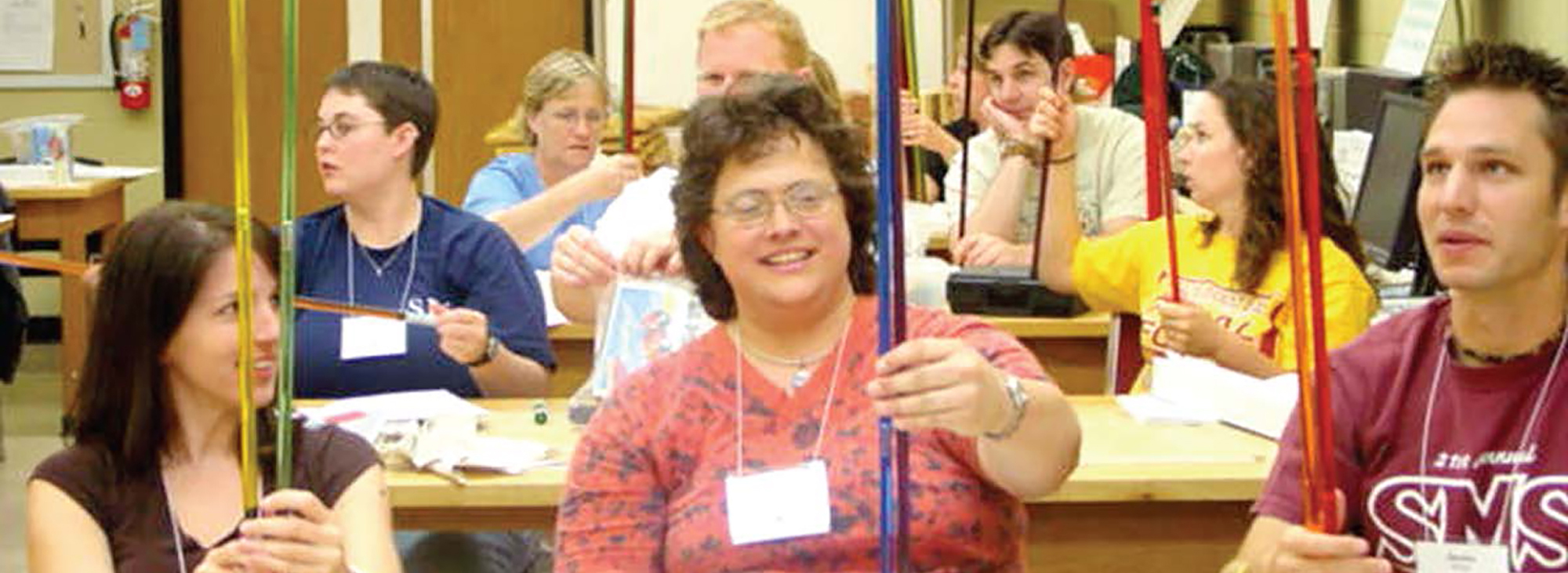The Academy for Teachers using Inquiry and Modeling Experiences for Freshman Physics in Missouri (A TIME for Freshman Physics in Missouri) is a Partnership among the University of Missouri-Columbia (MU), as the lead institution, seven core Partner school districts and several Supporting Partners.
This Partnership creates eighty Teacher Leaders from participating Missouri school districts. These Teacher Leaders deliver a yearlong physics course to ninth grade students. Through ten weeks in summer academies over three years and academic year follow-up experiences Teacher Leaders deepen their physics content knowledge and develop individualized leadership skills to assist other teachers of freshman physics in providing all ninth grade students with an inquiry and modeling based physics experience. Both university faculty and the Teacher Leaders develop an expanded range of pedagogical and leadership skills that they share with others, as they serve as resources and catalysts for reform in science education at the secondary and post-secondary institutional levels.
In addition to the science teachers involved in the summer physics academies, selected teachers of mathematics from the same schools participate in a concurrent week long academy, and school administrators attend a three-day academy, in order to provide additional support for teachers and students as they engage in freshman physics.
A curriculum team, including some of the Teacher Leaders, adapts the professional development curriculum used for teachers for use with ninth grade students by means of the educative curriculum materials (ECM) model. Special education teachers are involved in the curriculum repurposing, as well as becoming some of the Teacher Leaders, to infuse principles of Universal Design for Learning (UDL) to ensure the curriculum meets the needs of diverse learners. A series of formative assessment tasks to enable teachers to identify student misconceptions are identified, developed and embedded within the freshman physics curriculum lessons.
A substantive academic year component including coaches or mentors and an online feature assists teachers. Additional teacher supports include the formation of professional learning communities for small-group teamwork, electronic resources such as pod-casts of reading pages and videos of lab setups, online mentoring, kits and equipment access. Video access to MU lecture series in physics and in astronomy, which addresses cutting-edge research and is geared to non-experts is also available.
In addition to generating evidence of the impact of this endeavor, the project implements a research design to answer two important questions: 1) In a teacher intellectual leadership project, can enhancement of pedagogical practice, student content acquisition and teacher leadership growth through participation in an online learning community achieve results comparable to sustained classroom coaching support? And 2) Does implementation of Freshman Physics through the project curriculum yield more positive results in student achievement in mathematics and science than a more traditional educational sequencing of science?
Funding: National Science Foundation Mathematics and Science Partnership Teacher Institutes program, NSF-DUE 0928924, 2009-2015
